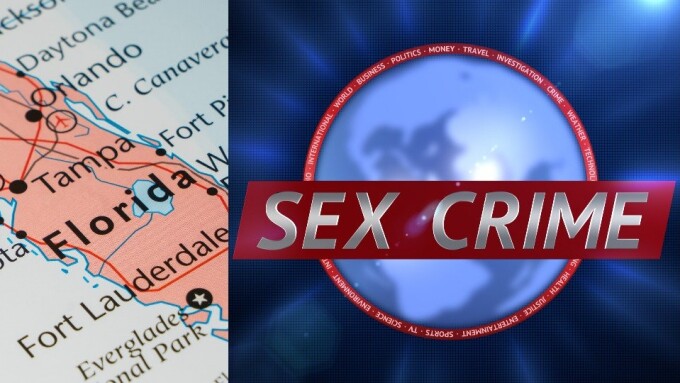TALLAHASSEE, Fla. — Florida legislators are proposing to lump in the same category “sex workers who have been convicted of prostitution three times” with cyberstalkers and “inmates who expose themselves to prison workers," local public media reports.
The proposal currently discussed by the Florida House Criminal Justice Committee aims to set limits to a recent amendment to the state constitution restoring voting rights to an estimated 1.4 million voters.
The proposal disenfranchises those who completed sentences for a preposterously broad range of “sex-related offenses,” from opening an "adult entertainment store within 2,500 feet of a school” to “human trafficking.”
Florida’s Amendment 4, also known as the “Voting Rights Restoration for Felons Initiative,” passed with almost 65% of votes in the 2018 election. It restored the voting rights of Floridians “who have completed all terms of their sentence, including parole or probation.”
The amendment, however, excluded people “convicted of murder or a felony sexual offense,” and local officials turned to the Florida Legislature for guidance on how to interpret those exceptions, as well as when a sentence can be considered “complete.”
The Florida Legislature is currently controlled by Republicans.
“The Constitution says ‘felony sex offenses’ and that means nothing legally, the best I can do is propose a list of felonies that are sexual,” House Criminal Justice Chairman James Grant (R-Tampa) told The News Service of Florida. Grant therefore instructed staff to include “all felony sex offenses” in the legislation.
“The reality is I’m going to do my best effort to maintain what I believe the rule of law now requires in a super-ambiguous constitutional amendment,” added Grant.
Amendment 4 was the first amendment to the Florida constitution to pass since 2006’s Amendment 3 raised the requirement for approving a constitutional amendment by popular ballot. Since it was approved by more than 60% of voters, it became part of Florida’s constitution on January 8, 2019.
“This is transformative in Florida,” ACLU of Florida’s Howard Simon told Time in 2018. “We will no longer have second class citizens.”
Critics of “felony disenfranchisement” (taking voting rights away from U. S. citizens who are convicted felons, even after completing their sentence, parole or probation) point out that the 1868 Florida Constitution, which enshrined the practice into law, mirrored the “Black Codes.” These racists laws, enacted all over the South after the Civil War, laid the groundwork for the “Jim Crow” era after 1877.
The House proposal broadly defines “felony sexual offense" as “any felony violation of any of the criminal offenses described in the following statutes in this state or similar offenses in another jurisdiction: s. 393.135(2); s. 394.4593(2); s. 491.0112(1) or (2); s. 775.0877(3); s. 784.049(3)(b); s. 787.01, s. 787.02, or s. 787.025(2)(c), where the victim is a minor and the court makes a written finding that the offense involved sexual intent or motive; s. 787.06(3) or (4); former s. 787.06(3)(h); s. 794.011, excluding s. 794.011(10); s. 794.05; former s. 796.03; former s. 796.035; s. 796.07; s. 796.08; s. 800.04; s. 800.09(2); s. 800.101(2); s. 810.145(6)-(8); s. 825.1025; s. 826.04; s. 827.071; s. 828.126; s. 847.011(1), (3), or (4); s. 847.012; s. 847.0133; s. 847.0134(1); s. 847.0135, excluding s. 847.0135(6); 847.0137; s. 847.0138; s. 847.0141; s. 847.0145; s. 847.07(2) or (3); s. 872.06(2); s. 895.03, if the court makes a written finding that the racqueteering activity involved at least one sexual offense listed in this subparagraph or at least one offense listed in this subparagraph with sexual intent or motive; s. 916.1075(2); s. 944.35(3)(b)2.; s. 951.221(1); or s. 985.701(1); or any similar offense committed in this state which has been redesignated from a former statute number to one of those listed in this subparagraph.”










